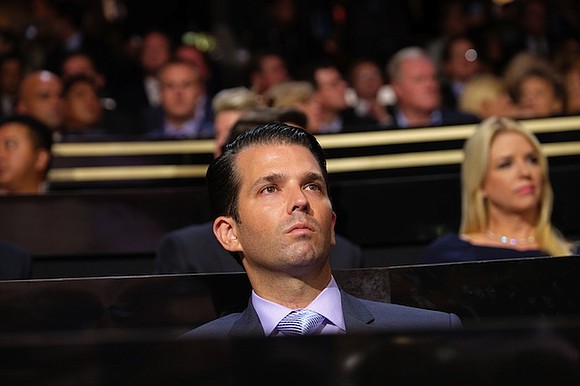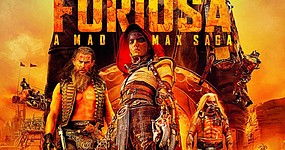The 1 big thing that still makes no sense in the White House's flip-flop on the Don Jr. Russia statement
CNN/Stylemagazine.com Newswire | 6/5/2018, 10:18 a.m.
Analysis by Chris Cillizza, CNN Editor-at-large
(CNN) -- To hear Rudy Giuliani tell it, the complete reversal from the White House on whether or not President Donald Trump was involved in crafting the statement issued by his son to The New York Times following the paper's report about a June 2016 meeting at Trump Tower with Russians is one giant misunderstanding.
"You can make a mistake -- you can make a mistake, and then if you don't -- if you want to, you can say it's a lie," Giuliani told CNN's Chris Cuomo on Monday night. "It was a mistake. I swear to God, it was a mistake. The guy made a mistake. It was corrected."
The problem here is twofold:
Who is "the guy"?
What "mistake" is Giuliani referring to?
The answer to the first question seems to be Trump attorney Jay Sekulow, who told CNN back in July 2017 that "I wasn't involved in the statement drafting at all nor was the President."
Now for the "mistake."
Giuliani would have you believe that the mistake Sekulow made was simply misstating the fact that, yes, Trump dictated the statement. But Sekulow didn't cop to that fact in a statement explaining the discrepancy between his statement last July and a January memo sent to special counsel Robert Mueller's team in January by Trump's legal team -- in which it's made clear that Trump dictated the Don Jr. statement.
"The statement in the January letter reflects our understanding of the events that occurred," Sekulow told CNN on Monday night. That statement implies pretty clearly that Sekulow was passing along the information as he understood it from, um, someone. There is no indication in that statement that he made a mistake of any sort.
Who could have told Sekulow information that wound up not being accurate? Presumably one of a very small group of people that includes the President himself, Donald Trump Jr. or, perhaps, then-communications director Hope Hicks.
This back-and-forth between Don Jr. and members of the Senate Judiciary Committee shines some light on who might have told Sekulow.
Q: The Washington Post has since reported that your father was involved in drafting your July 8 statement. Is that correct?
Trump Jr.: I don't know. I never spoke to my father about it.
Q: Do you know who did draft that statement?
Trump Jr.: Well, there were numerous statements drafted with counsel and other people were involved and, you know, opined.
Q: To the best of your knowledge, did the President provide any edits to the statement or other input?
Trump Jr.: He may have commented through Hope Hicks.
Q: And do you know if his comments provided through Hope Hicks were incorporated into the final statement?
Trump Jr.: I believe some may have been, but this was an effort through lots of people, mostly counsel.
So, Don Jr. didn't even know that his dad dictated the statement -- unless he's lying under oath, which is a federal crime and, therefore, unlikely.
That still leaves the possibility that Hicks, who we know was intimately involved in the crafting of the statement, might have given Seuklow bad information. And it's of course possible that any other senior staff member who was on the plane when Trump dictated the statement for his eldest son could have a) known about it and b) told Sekulow about it.
But those feel like long-shot possibilities when compared to the other scenario staring us directly in the face: Sekulow asked Trump himself whether or not he dictated the statement. Trump either flat-out told him he didn't, told him he couldn't remember or hedged to the point where Sekulow felt comfortable going on national TV to insist Trump was not involved in the crafting of the statement.
Which brings me back to Giuliani's "mistake" explanation. This was almost certainly not a mistake in the way Giuliani is trying to paint it -- and certainly not a mistake by Sekulow or White House press secretary Sarah Sanders, who also insisted that Trump did not dictate the statement.
Their information -- bad, it turned out -- was coming from somewhere. And that somewhere is at least as likely to be the President of the United States as anyone else.
The real issue is why Trump would pass along bad information. Was it simply that he forgot that he had dictated the statement? Or was he purposely avoiding acknowledging authorship of the Don Jr. statement for some less benign purpose?









